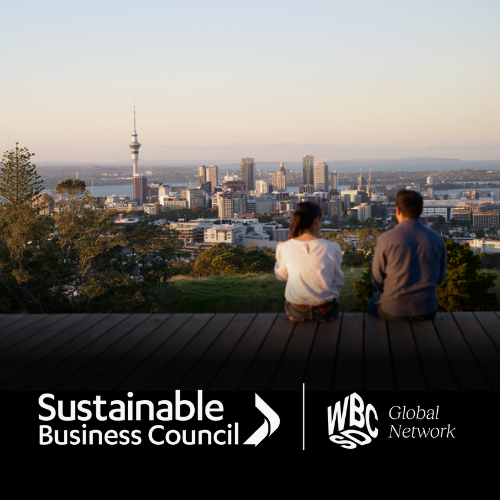Thursday, 13 April 2017
Abbie Reynolds uses the mass pilot whale stranding at Farewell Spit to highlight the power of clear purpose and the opportunity for businesses to innovate against the threat of climate change.
Being on a beach with 416 long-finned pilot whales, 300 of them dead, felt like an enormous tragedy. And it was.
As a trained Project Jonah marine mammal medic, I was at Farewell Spit in February this year briefing hundreds of volunteers, many of them international tourists, on what they’d need to do to save these charismatic and beautiful mammals.
A tragedy yes. Heart-breaking, absolutely. But astonishingly, also an opportunity; a demonstration of the power of a clear purpose in bringing people together in a collective effort to make a difference.
And this is exactly where we need to focus our thinking as businesses in a time of accelerating global change. Where’s the opportunity, and what’s our purpose?
We talk about accelerating global change, but what does that really mean?
Understanding the global megatrends that are shaping the future of business is one way of answering that question. Ernst & Young identifies at least eight of those megatrends.
Firstly, the centre of gravity is shifting from the West to the East. By 2025, 20 of the world’s 50 richest cities will be in Asia and by 2030, the Chinese and Indian middle classes are expected to make up 35% of global consumption – up from just six percent in 2011.
There’s also a massive power shift occurring. Of the 100 largest global economies, 40 are now companies. Social media platforms now outrank nations. And the growth and rising power, wealth and political autonomy of cities is set to increase their relative importance as economic actors.
Generationally we’re changing too – in ways we’ve never experienced. There are the millennials, the consumer activist generation who’ve grown up with issues of sustainability and climate change dominating their social media feeds. Did you know that 75% of millennials check the sustainability creds of brands?
Millennials have grown up connected, collaborative and mobile – they don’t think or behave like you do. By 2020, they will make up more than 50% of the workforce.
Another megatrend is the acceleration in disruptive technologies, automation and robotics – all reshaping the way we do things. In the next 20 years 47% of occupations in advanced economies are at high risk of being automated.
And climate change, the biggest megatrend of all, is expected to be the strongest driver of innovation since World War Two. As businesses, governments, cities and civil society get focused on meeting the Paris Agreement commitment to keep global warming below two degrees, we expect to see innovation on a scale we haven’t experienced before.
The challenge for business owners
We need to face these challenges in a time of declining trust in our key institutions, including business.
It’s hard for human beings to think and act for the long-term, even more so in the face of global scale trends. That’s why the more data we have the more we can make evidence-based decisions – and that is critical for any business if we’re going to find the opportunities.
If you are a business owner – no matter what shape or size – you need to understand how these trends could impact your sector, your market, your business.
And then consider how these trends present an opportunity.
As Kiwis we value our ability to innovate. If we can find an opportunity where others see threats, we have a good chance to create value.
But we will also need to do this in ways that builds, rather than erodes, trust.
How do businesses tackle these challenges?
Our members use a sustainability lens – finding ways to reduce their negative impacts on society and the environment, and increase their positive impacts.
Other members go a step further, making purpose their driver; a purpose that delivers for society, communities and staff, as well as shareholders.
Like those stranded whales – a tragic event that brought out the very best of humanity in its desire to help, to find a solution, to pitch in and deliver value – the challenges we face are an opportunity for innovators and entrepreneurs.
My plea to all New Zealand businesses is to start thinking about how you can engage your curiosity and desire to make a difference, so we as a business community can come up with the solutions.
Email:

